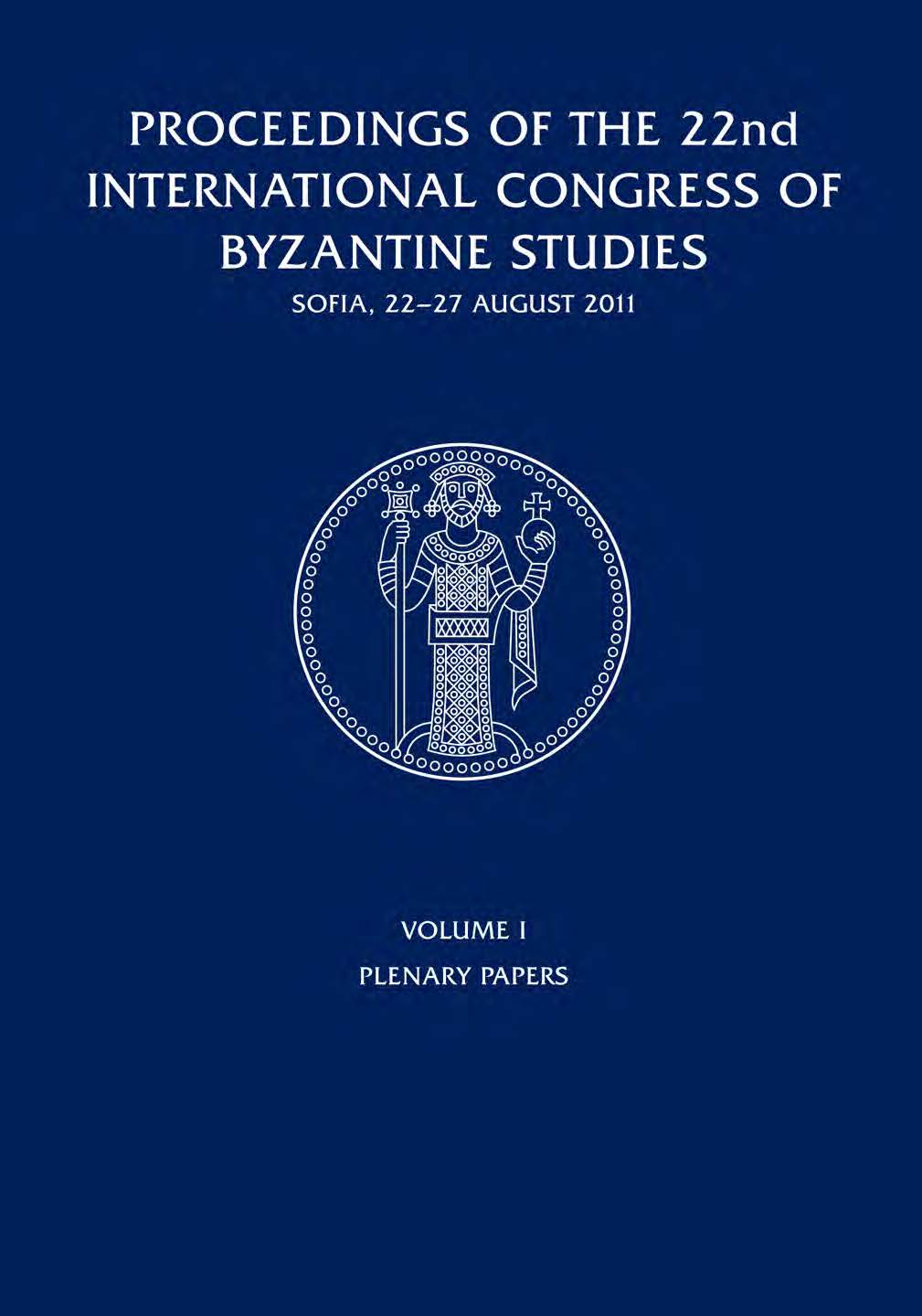

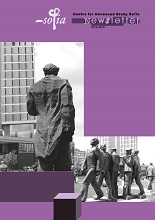
Keywords: Centre for Advanced Study; CAS; CAS-Sofia; Newsletter; CAS Newsletter; CAS Newsletter 2014-2015
Articles, pictures and interviews can be reprinted only with the consent of Centre for Advanced Study Sofia (CAS - Sofia). Any citations should be duly acknowledged.
More...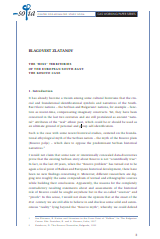
Keywords: Romanian discourse of national peculiarity; Transylvanian Greek Catholic elite; genealogical construction
As in most European cases, some aspects of the Romanian discourse of national peculiarity can be traced back to the humanist genre of "Descripţia" of the land, narrating the origins and political history of the respective people, a genre which in the Danubian Principalities reached its climax in the works of the erudite Moldavian prince-scholar Dimitrie Cantemir (1673–1723).1 The works rooted in the humanist chorographical paradigm of course had a very different discursive function and referential basis than the characterological constructions underpinning the projects of modern nationhood and statebuilding, emerging from the late 18th century onwards, making "national individuality" a key argument of political self-legitimization. Some references to this national individuality can be identified in the political and cultural works of the Transylvanian Greek Catholic elite, which sought to anchor the historical-institutional identity of Transylvanian Romanians in a genealogical construction. They were stressing customs and behavior as the proof of continuity with the Roman colonists of Dacia and accidentally, even the concept of "character" surfaced in some of their writings. Simultaneously, the culturalgeographical literature stemming from the Danubian Principalities (often by travelers or cosmopolitan intellectuals, whose work can be related to more than one national tradition, such as the Greek Daniil Philippide or Dionisie Fotino, both of whom authored geographical descriptions of these lands, or the French Encyclopédiste, J. L. Carra) sought to put these polities on the map of Europe, making references to the customs of the inhabitants. Significantly, the concept of character was already able to become politicized in the late 18th century, as was the case with the reformist discourse of the Moldavian boyar Ionică Tăutul, who deplored the loss of patriotic identification and the growth of egoism on the part of the ruling elite.
More...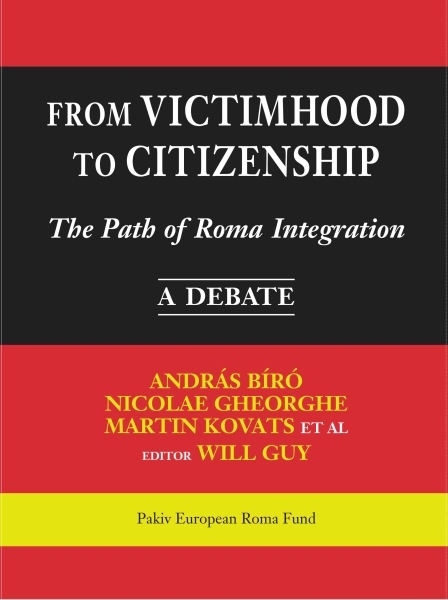
The time has come to suggest some serious changes in roma civil society. this paper is written as a response to the compelling need for a language that goes beyond political correctness and challenges the assumptions of liberal human rights discourse. recent polemics over roma integration are mingled with a reluctance to address ‘touchy’ or ‘risky’ issues – sometimes even ‘taboos’ – by those who strive to defend the rights of roma or by roma themselves. We need to forge a new language, based on a frank and critical revision of previous approaches, to understand the origins of this crisis and move forward.
More...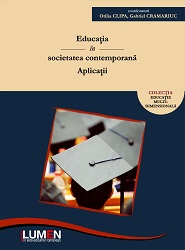
Keywords: Higher pedagogical education; structural reform of national education system; European educational space; Bologna process; changes in teacher education
The article deals with the changes in teacher's education designed to ensure high competitiveness of future graduates. The author enlists all the reforms needed in educational field for Ukrainian education to become able to compete with those of European countries. It is stated that process of structural reform in national education systems, changes in educational programs and institutional reforms should be made. The legislative norms for the changes in question are reviewed. The author comes to the conclusion that given evolution of the education system should not be separated from other areas of society. It has to develop in a harmonious interrelation with society as a whole, taking on the role of its leader.
More...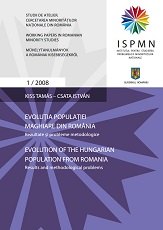
Keywords: Hungarians in Romania;
The present study aims to present the evolution of the Hungarian population in Romania. Thus, the results of the study and the methodological problems that emerged as a result of the application of standard demographic methods to minority populations (in this case the Hungarian population) are presented in detail.
More...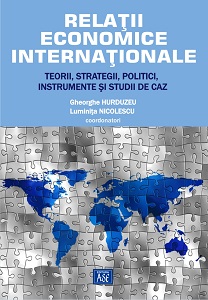
Objectives: - To highlight the defining attributes of the “institutional arrangements” (that is of the “economic systems”) that circumscribe the economic activity within a country / jurisdiction, thus giving meaning to the comparisons to be made between the political and legal systems coexisting in the world - To consolidate a critical, analyticalevaluative, apparatus, useful in international business, in which various calculations are made in order to optimize the activity inside and among various national spaces, whose institutions and policies have a significant impact on the results of the economic agents with international exposure
More...
Keywords: international business; international economics; international management; international marketing; international finance
The volume has 22 chapters organized in four thematic parts: the first part includes elements related to the world economy system in the context of international economic relations, international organizations and global governance. The second part looks at the international environment and how this influences the international activity of a company. The third part focuses on the organization that operates at international level and how specific activities are conducted (negotiations, contracting, management, marketing, foreign trade operations, risk management and others). The last part, the fourth looks at recent challenges in the internationalization, such as innovation, technology, intangible economy and lobby.
More...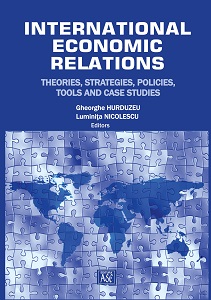
Keywords: international business; international economics; international management; international marketing; international finance
The volume has 22 chapters organized in four thematic parts: the first part includes elements related to the world economy system in the context of international economic relations, international organizations and global governance. The second part looks at the international environment and how this influences the international activity of a company. The third part focuses on the organization that operates at international level and how specific activities are conducted (negotiations, contracting, management, marketing, foreign trade operations, risk management and others). The last part, the fourth looks at recent challenges in the internationalization, such as innovation, technology, intangible economy and lobby.
More...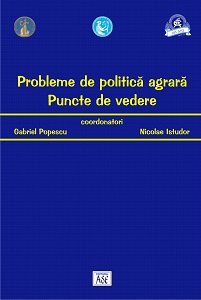
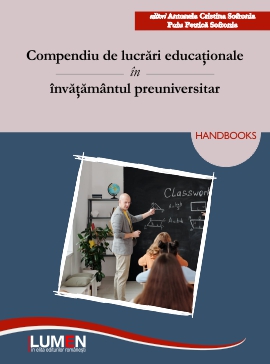
Keywords: The aesthetics; the character; Camilpetrescian theater
Theater means living, emotion, show. The dramatic conflict goes beyond the space of the stage, the inner one being much stronger than the outer one, always existing in the theater the conflicts of the ego with itself, with its own weaknesses.
More...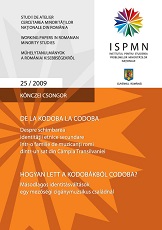
Keywords: Secondary Ethnic Identity; Roma Musicians; The Magyarpalatka; identity change; traditional dance music;
The Magyarpalatka, located on Inner Mezőség, is one of the Gypsy musicians' centers in Mezőség. Many Gypsy music families lived and live here to date, the most famous being the Kodoba family. The present case study undertook to find out how the romungro family of the Reformed Religion in Romania, with the Hungarian-speaking, Reformed Religion, romanesque, in Hungarian, no longer (or hardly speaking) in the 20th Century, still a reformed, then Orthodox family, and tries to outline the broader social contexts of this process of identity change and to answer its causal relationships. Doing this by examining the extent to which the secondary identity change (including the change of the ethnic projection of the personal name) is related to the changing social, historical and political situations, to the extent that Magyarpalatka is continually depopulated from the Hungarian point of view, dominating the local Romanian population (not just numerical) and last but not least to some extent the economic aspects of the village vocational music industry. The research carried out at the same time makes it interesting that Gypsy musician of the Kodpal Gypsy family in Budapest is a Roma mother tongue, and its primary ethnic identity (for the time being) Roma, and that for the sake of its vocation has preserved the mediating role of local Hungarian, Romanian and Roma cultures as the traditional dance music of each ethnic group mediated and provided.
More...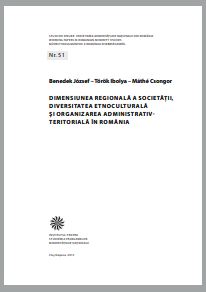
Keywords: Romani study; Roma education; Romania; 1990-2012; University level education; Roma identity; School education;
The achievements in Romania regarding education for Roma are, of course, undeniable, those related to the identity reconstruction through the study of the language in the institutional system are also world-leading, the measures to promote and form a proactive Rroma intellectuality are good. Undoubtedly, the many human resources formed and present in the educational system are more than necessary, the impressive working tools for teaching Rromani from the kindergarten to the university level are obvious, the 10-13% Roma students studying in mother tongue Romani and over 7-11% Roma students in the general number of preschools and pupils in the pre-university system who attend school and assume indifferent Roma identity impress in a pleasant way etc., therefore, they all speak for themselves, both quantitatively and qualitatively. With all these unprecedented gains, however - relative to the large number of Roma in Romania (possibly two and a half million, with and without Roma identity assumed continuously) - there is still much to be done so that we can speak of more than 2-3% of high school students with a Roma identity assumed by a percentage of Roma children in grades I-IV higher than the current one (13%) and who do not decrease, as at present, to grades V -VIII (9-11%), let's talk about the presence of more than 10%, as now, of Roma preschoolers compared to the other 90% of preschoolers among other ethnicities, we can have many more kindergarten classes and classes primary education to fully study in their own Rromani language, to register as few segregated classes as possible and to find as few discretionary attitudes fromschool administrators and local authorities when talking about co-opment, (Roma inspectors, Roma executives, Roma school mediators, Roma teachers, Roma educators and teachers, Roma school counselors, etc.), and last but not least, when we will learn to be more empathic and better living and promoting diversity (linguistic / cultural / ethnic / historical / religious / physical / gender).
More...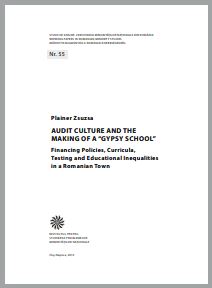
Keywords: Audit culture; State-ruled education; Romania; Roma population; School elite; School history; educational inequalities;
However segregation and discrimination are very important factors that block access of Roma to quality education, there are a series of less visible phenomena also responsible for school inequalities. Aim of this paper is to understand how some of these sophisticatedly linked factors lead to the making of a "Gypsy school" in a Romanian town, a school with low educational performance and bad fame. In doing so, the notion of audit culture is introduced, understood as a set of culturally mediated norms and practices of ranking. As this approach comes into sight, one may understand how - despite the commitment shown by the Romanian policy-makers to facilitate school integration of the Roma - a series of regulations unwittingly obstruct this aim. As it is revealed below, the framing of the national financing policies may involuntarily lead to tracking the Roma children into certain schools, where - in lack of a variety of teaching materials, refined testing and a clear system of rewarding the teacher's performance - quality education becomes a hard-to-reach target. The contextuality of the bad label of a "Gypsy school" is also relevant in this research as it is either a resource, or a stigma depending of the situation.
More...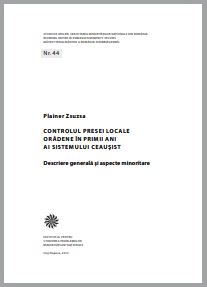
Keywords: Gheorghe Sarău; Publishing works and literature; Romany language; Ethnic minorities studies;
Gheorghe Sarău (Romania - Bucharest, born in 1956) has been since 1992 a professor doctor at the department of Romany Language and Literature, at the Faculty of Foreign Languages and Literatures (University of Bucharest). At the same time, he has been a counselor for Romany language and Roma at the Direction for Minorities - Ministry of National Education (1992-present). After graduating from university (University of Bucharest, Faculty of Foreign Languages and Literatures - Russian and Hungarian languages Departments; Bulgarian and Spanish as optional courses) in 1983, Gheorghe Sarău began to study Romany individually, language which he taught at the Normal School of Bucharest from 1990to 1994, to a group of future primary school teachers. On 28 September 1998 he became a Doctor of Philology at the University of Bucharest. The doctorate was obtained under the guidance of prof. Lucia Wald in the Indo-European studies field, on the subject of Tinsmiths Roma Language. Gheorghe Sarău attended several training programmes (1990-2000) in the field of Romany Language, under the guidance of Prof. Marcel Courthiade (professor at INALCO Paris) and of Prof. Rajko Djurić -poet and the President of National Roma Union, in Finland (1991), Italy (1992), France (1993 1994, 1995), Germany (1998). He was also invited by Professors Courthiade and Djurić to teach with them Romany courses in Germany (1999 and 2002), at the International Courses of Romany Language, Literature and History. Gheorghe Sarău published his first article in 1982, as a student, and his first book was published in1992 (the first Romany dictionary in Romania - Mic dicționar rom-romîn, Kriterion Publishing House). Over the years, he has published over 70 titles, most of them individually, but also as collective works. He has also played an important role in the standardization of Romany language in Romania, in the organization and development of the Romany studies at the pre-school, school, high school and university level. In October 1992, he introduced the first Optional Course of Romany Language at the University of Bucharest and in 1997 he created the Department of Romany Studies at the Faculty of Foreign Languages and Literatures in Bucharest. He also founded the Distance Learning Department for Romany Language, which helped training over 600 Romany Language school teachers. He has also managed the developing and implementation of strategic programmes of the Ministry of Education in Romania. In recognition for his outstanding contribution to promoting constantly the Romany Language -through writings, through the introduction and consolidation of the Romany language education and through the initiatives regarding the general education of Roma - he has received several awards(Hidalgo Award - Spain, 1999; The Republic of Italy President's Award - Italy, 1999; Decoration and diploma on the occasion of the celebration of 25 years from the founding of the Hindi Language Department in Romania, awarded by HE the Indian Ambassador, Rajiv Dogra, on 29 March 2000, etc.).
More...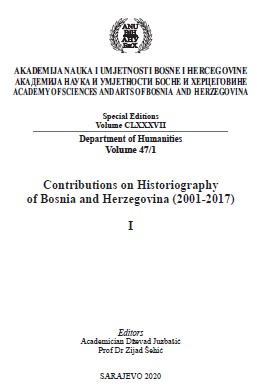
Keywords: Russian historiography; Bosnia and Herzegovina; interpretation; politics; Balkans;
The periods of deep political and social quakes always bring reconsideration and rearrangement of the events that happened in the past. Disappearance of ideological paradigm, changes in global politics and epochal consciousness affected the return of the pre-socialist past, its romantization and idealization, as well as revisionist change of social determinants that were used for historical interpretations in post-socialist countries with the intense action of politics, nationalism and history in their historiographies. Even the bigger historiographies like Russian, are not immune from political pressure in relation to its own history, and histories of other countries and nations. There are many differences between the Soviet and the modern Russian historiography, as well as their forms. Due to the wish to control history, the international and class principle gave its place to the more active, national one, with the renewal of its identity that is clean from communist influence. Interests and politics of superpowers leave a huge mark in the history of the Balkan nations. Political disputes and positioning affect the historiographies and they play a big role in determining the topics that need to be researched. Dissolution of Yugoslavia and the emergence of new post-Yugoslav states on the European political map worsened the efforts of Russian historians in analyzing and researching their past and modernity. The increase of Russian interest in researching the history of Bosnia and Herzegovina is related to the political crises and conflicts in that area and wider Balkan context. Their attention is mostly focused on the Eastern Crisis (1875–1878.) and the Bosnian / Annexation crisis (1908–1909), dissolution of the SFRY and the “post-Yugoslav” wars. They also do research about the events that occured in this area in the last decade of the 20th century and at the beginning of the 21st century.
More...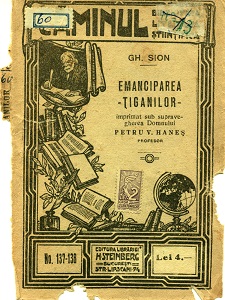
In the 5th secondary class, memoir readings are required, in connection with the special study of this literary species. In Romanian literature, there are few such productions. Among them, the most attractive are Gh. Sion's. This writer is distinguished by a special storytelling talent. His volume "Suvenire contemporane" deserves all our attention. From it we reproduce here the chapter "Emancipation of the Gypsies", an interesting story and a successful characterization, at the same time, of Romanian society in the first half of the XlXth century.
More...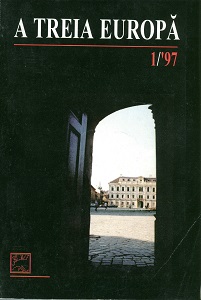
Keywords: reviews; book reviews; Europe; Central Europe; culture; politics; identity; literature; Romania; Interculturality;
Reviews of: 1. Jaques Le Rider, Modernitatea vieneză și crizele identității, tradusă în românește de Magda Jeanrenaud, Editura Universității „ALL Cuza” Iași, 1995. 2. Virgil Nemoianu, Micro-Armonia-dezvoltarea și utilizarea modelului idilic în literatură, Editura Polirom, Iași, 1996. 3. Revenirea în Europa, Antologie de Adrian Marino, Editura Aius, Craiova, 1996. 4. Andrei Corbea-Hoisie et Jacques Le Rider, Metropole und Provinzen in Altösterreich (1880-1918) (Metropolă și provincie în Vechea Austrie, 1880-1918), Published by Böhlau (1996). 5. Erich Zöllner, Istoria Austriei, Ediția a VIII-a (vol. 1 și 2), traducere de Adolf Armbruster, Editura Enciclopedică, București, 1997. 6. Adam Michnik, Scrisori din închisoare și alte eseuri, traducerea și îngrijirea ediției : Adriana Babeți și Mircea Mihăieș, cu o prefață de Vladimir Tismăneanu, Editura Polirom, Iași, 1997. 7. Timothy Garton Ash, Foloasele prigoanei. Lanterna magică, în românește de Catrinel Pleșu, Editura Fundației Culturale Române, București, 1997. 8. George Ciorănescu, Românii și ideeafederalistă, Editura Enciclopedică, București, 1966, ediție îngrijită de Georgeta Penelea Filitti. 9. Leszek Kolakowski, Horror Metaphysicus, Editura All, 1997, traducere și adnotare de Germina Chiroiu. 10. Vladimir Tismăneanu, Reinventarea politicului. Europa Răsăriteană de la Stalin la Havel, traducere de Alexandru Vlad, studiu introductiv de Dan Pavel, Polirom, Iași, 1997. 11. Irena Grudzinska Gross, Cicatricea Revoluției, în românește de Irina Giușcă, Editura Athena. 12. Slavenka Drakulić, Balkan Express, în românește de Petronela lacob, Editura Athena, București, 1997. 13. Victor Neumann, Identități multiple în Europa regiunilor. Interculturalitatea Banatului, Editura Hestia, Timișoara, 1997.
More...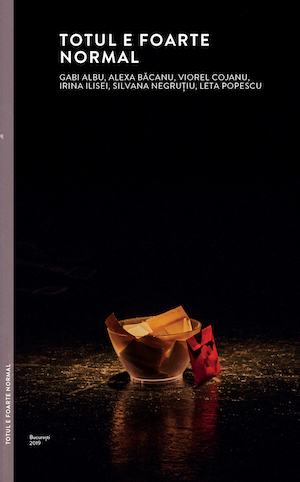
Keywords: educational theater; show script; theater director; documentary theater; children; parents; performing arts; social theme; sexual education; Romania; school; parent-child communication;
The project "EVERYTHING IS VERY NORMAL - DIALOGUE WITHOUT TABOOS." is organized by the Replika Cultural Association and co-financed by the National Cultural Fund Administration - AFCN.
More...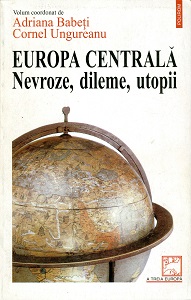
Keywords: Central Europe; ethos; modern age; recent history;
Voi propune, în această lucrare, un punct de vedere destul de incomod. E vorba despre faptul că, într-un spațiu larg al Europei Centrale - acoperind, în mare, Austria, Cehoslovacia, Ungaria, Iugoslavia și România de astăzi -, societatea a fost îmbibată de un etos comun, esențialmente diferit de acel „etos protestant al muncii” care se dovedise indispensabil în procesul impunerii capitalismului modem și a democrației liberale în țările anglo-saxone și în nord-vestul european în general. Nu pe munca aducătoare de cîștig ori pe realizările individului s-a întemeiat etosul Europei Centrale, ci mai degrabă pe acumularea de cunoștințe și pe recunoașterea comunitară a importanței instruirii, înțeleasă ca măsură a tuturor meritelor umane și ca vehicul al avansării sociale. Voi încerca să explic mai întîi originile ideologice ale etosului central-european și modul de diseminare al acestuia. în al doilea rînd, potrivit implicațiilor titlului pe care l-am ales, voi încerca să precizez dimensiunea socială și de clasă a acestui fenomen etic și istoric. Și anume, voi aduce exemple pentru a demonstra că etosul central-european era larg răspîndit în toate clasele sociale, de la cei săraci la aristocrație, precum și în toate grupurile etnice. Iată de ce întreg spațiul respectiv împărtășea credința în epistemologie drept singura în stare să furnizeze reguli valide pentru mobilitatea socială și pentru organizarea societății. în al treilea rînd, voi examina geografia culturală a fenomenului, altfel spus, sfera geografico-istorică a etosului instruirii, măsura în care acesta definește o identitate culturală comună pentru Europa Centrală și, în același timp, asemănările și diferențele în raport cu celelalte părți ale continentului (Germania, Rusia, Franța). Alte subiecte vor fi atinse în treacăt: declinul și/sau dispariția etosului central-european în chiar spațiul unde acesta s-a născut, neașteptata lui supraviețuire/resurecție în America de Nord, precum și relevanța pe care acest etos „central-european” o dobîndește pentru lumea întreagă la sfîrșitul secolului XX.
More...